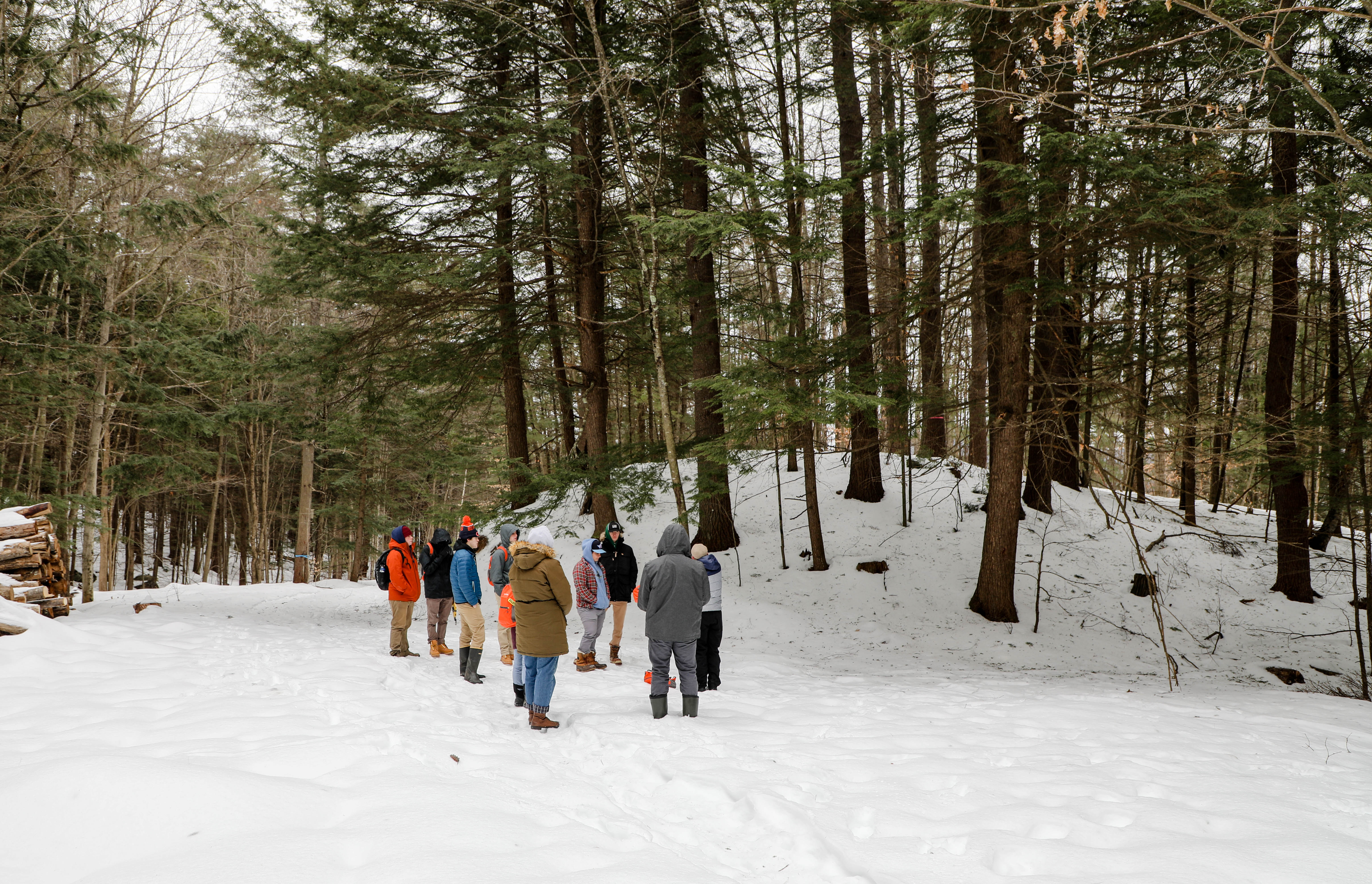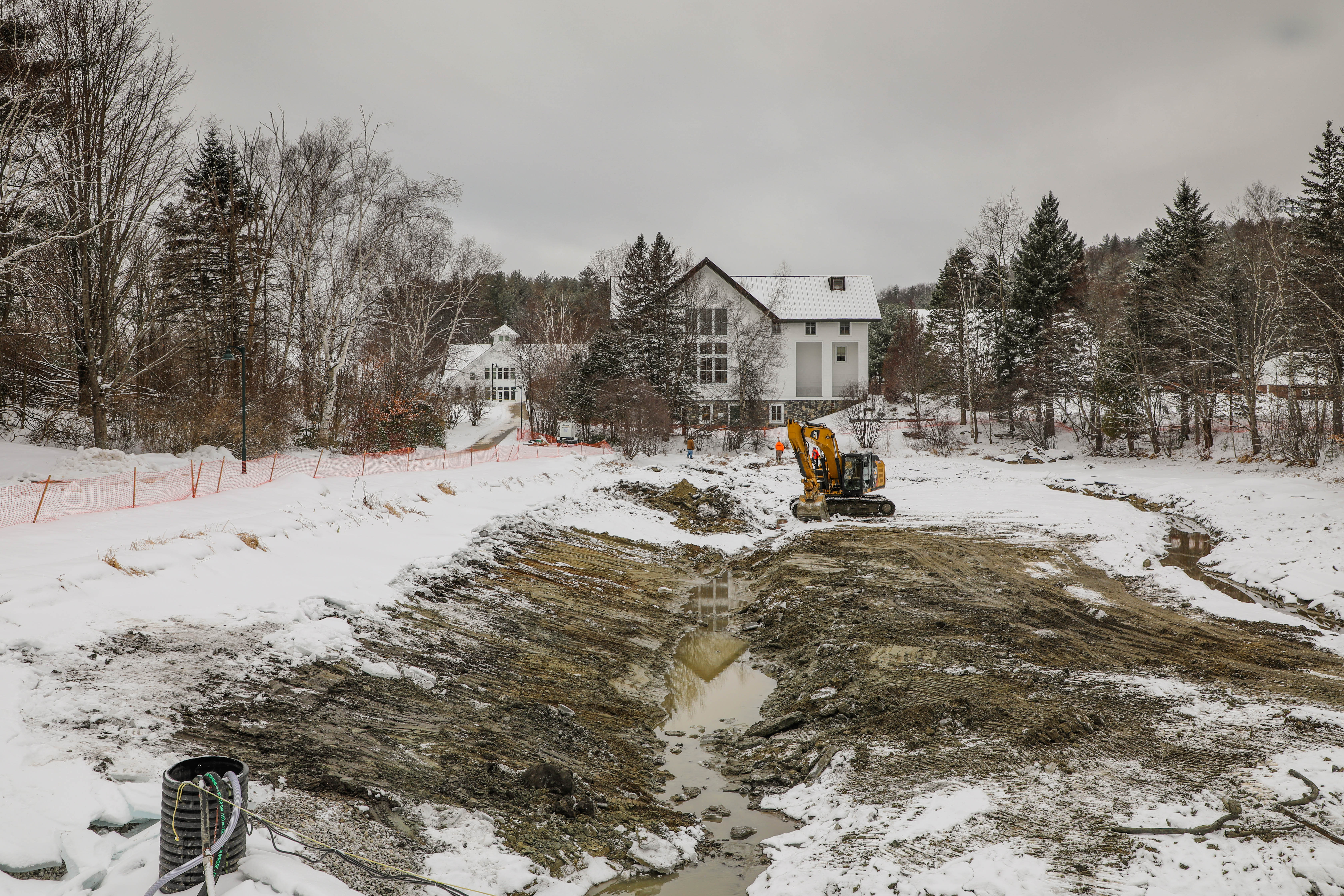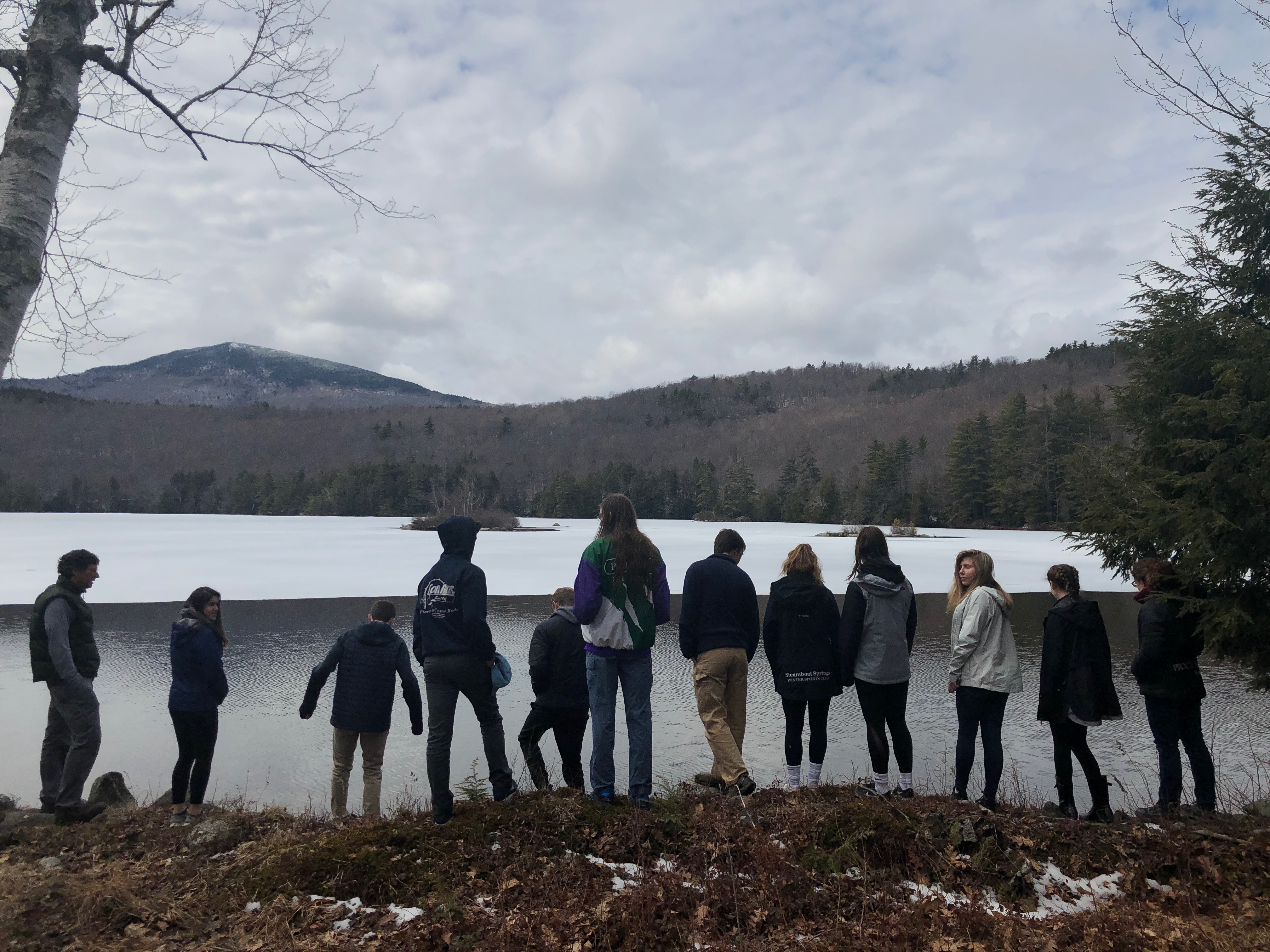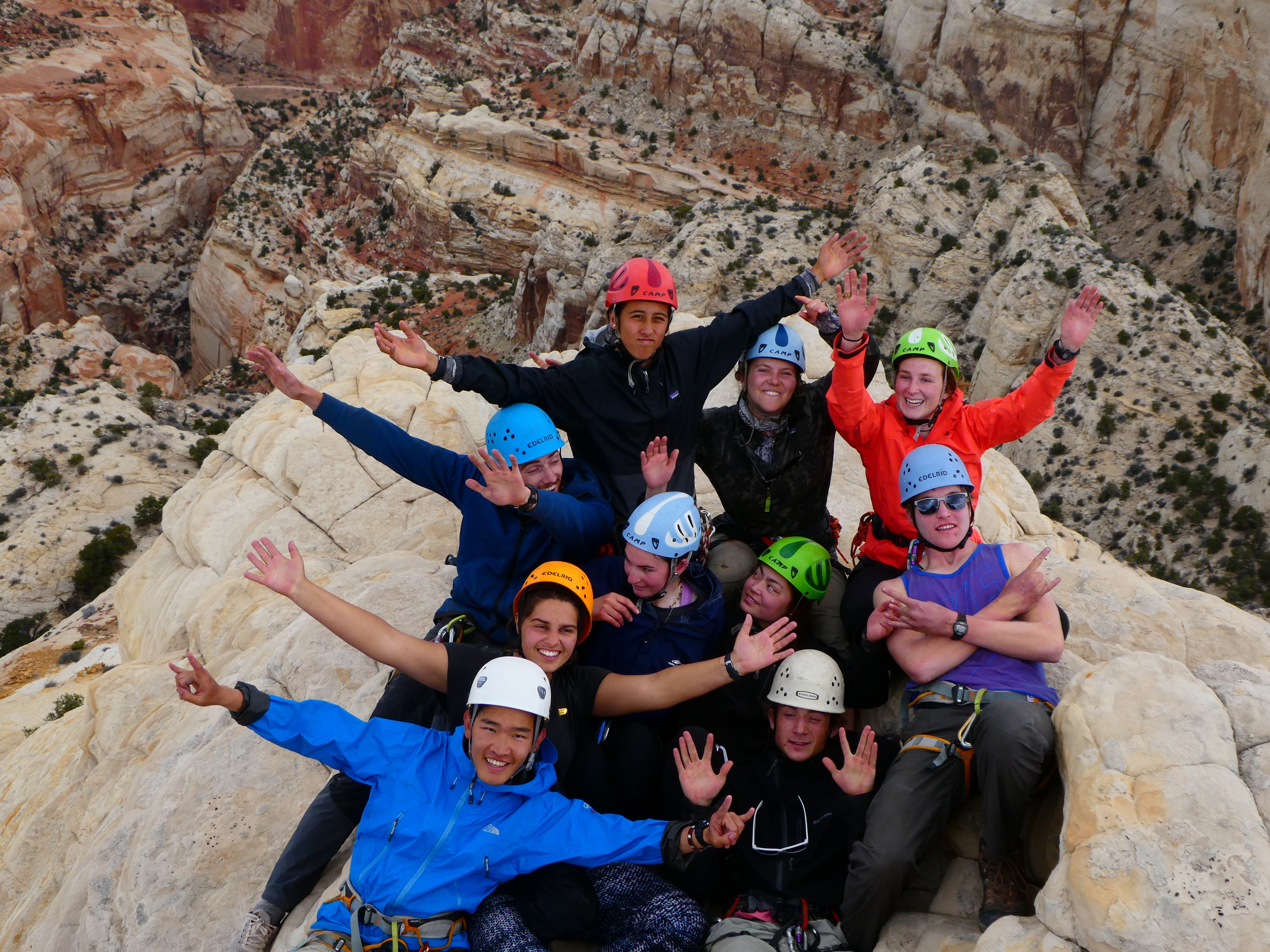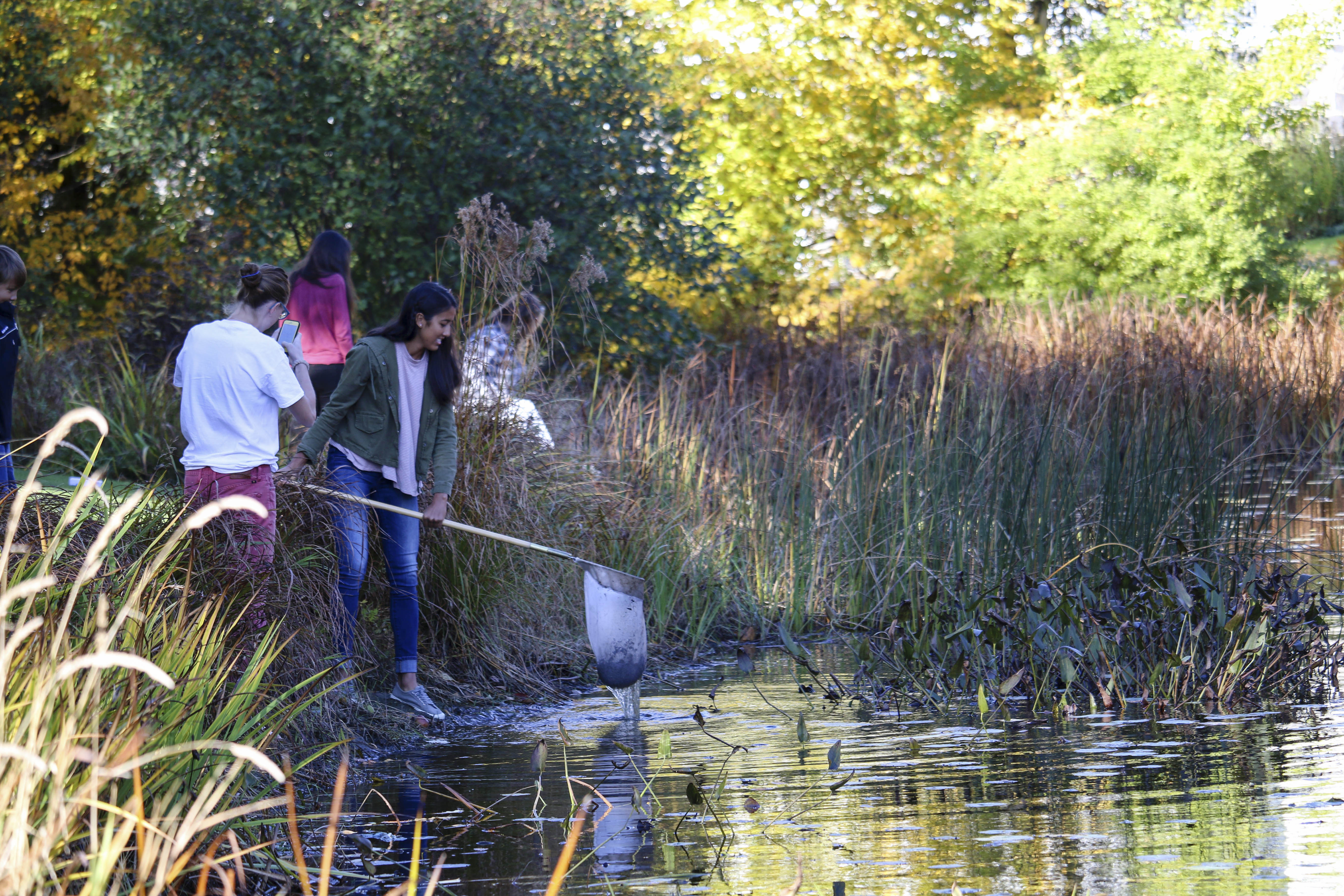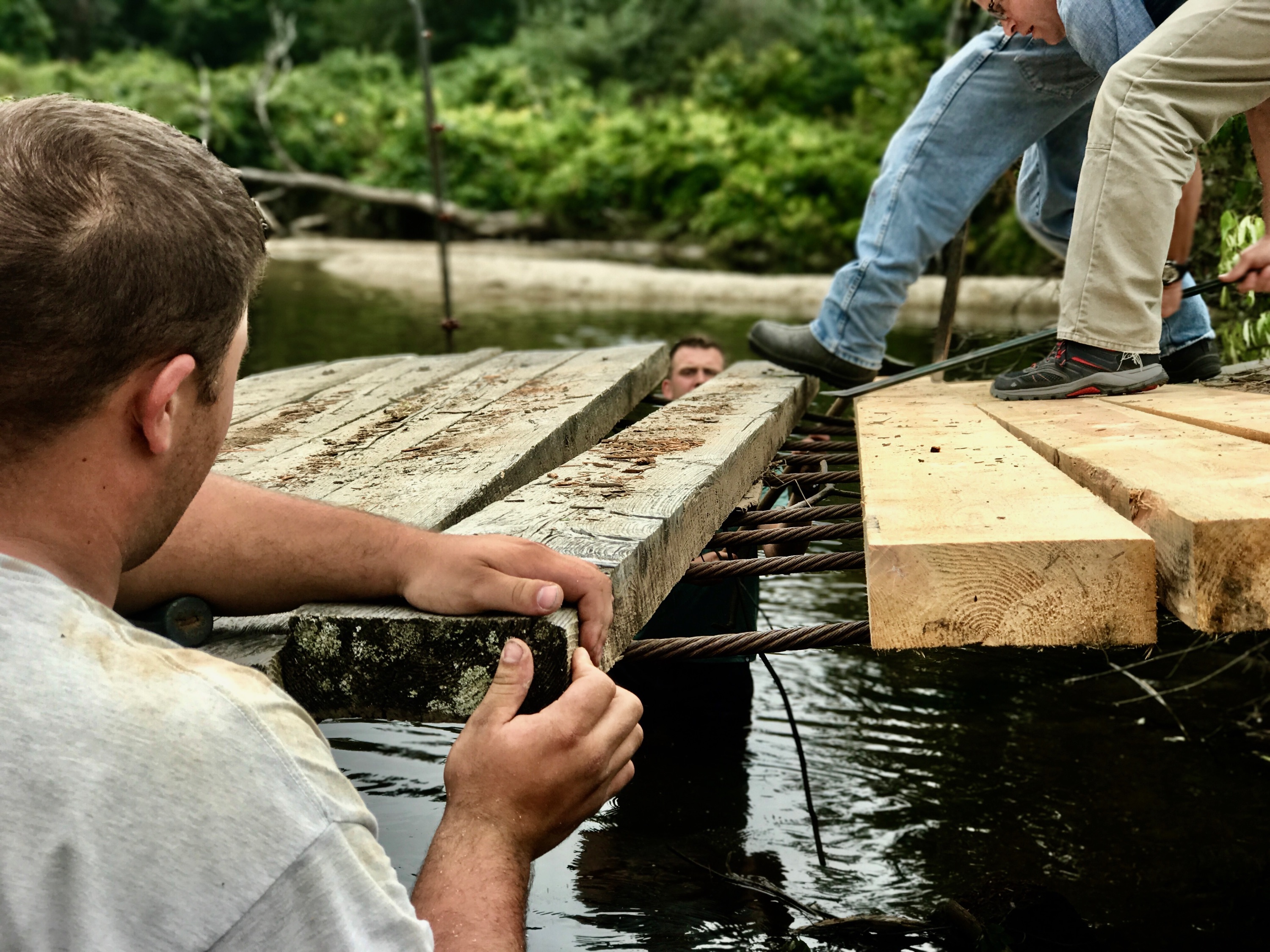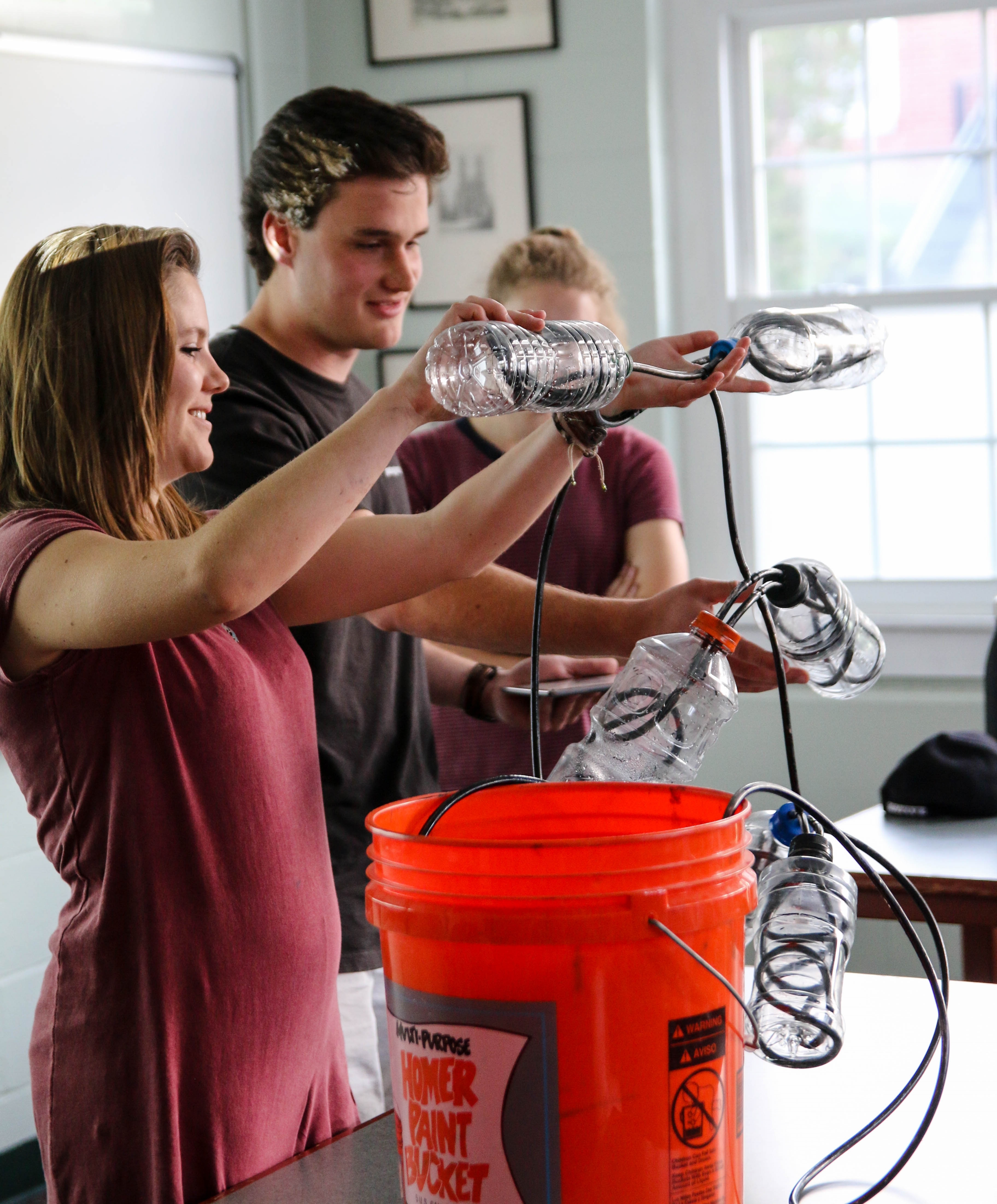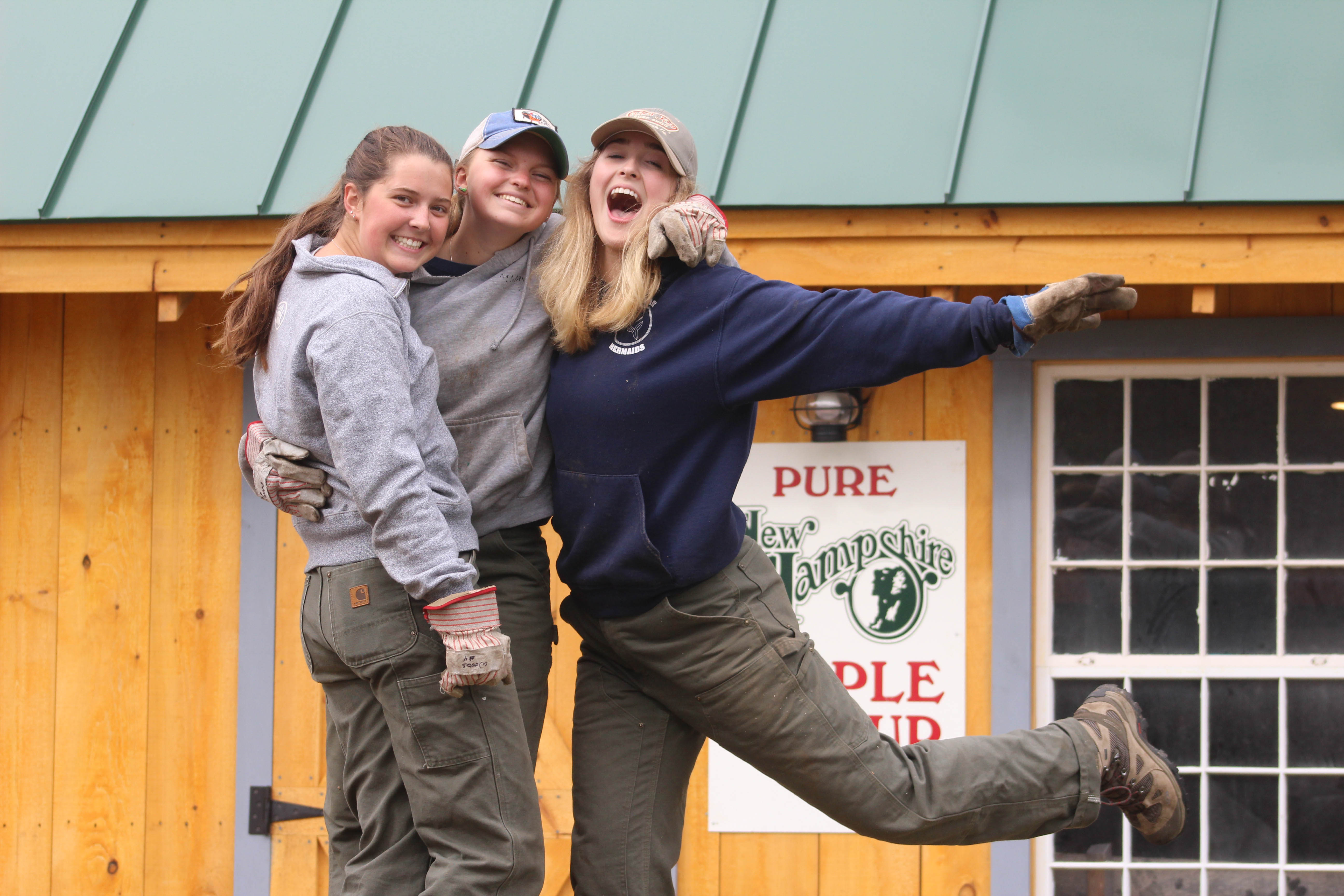As you walk past Guilick House and approach the steps to Mary Lowell Stone House, you gaze to your left and see Proctor’s Woodlands building. For the past thirty years, white smoke would waft out of the chimney from the small cast iron wood stove inside this home base for the management of Proctor’s 2,500 acres of woodlands. The former office of longtime forester and wildlife science teacher David Pilla, few of us have ventured to this corner of campus since Dave’s passing in July. However, the time our students are spending on our land, studying wildlife and ecology, continues through the work of Alan McIntyre and Lynne Bartlett’s Conservation Ecology classes.
Cycles of Life: The Proctor Pond
Jan 8, 2019 1:13:10 PMLife at an academic institution synchronizes you to nature’s cycles as meteorological and calendar milestones create inseparable associations: fall foliage/Fall Family Weekend, first snow/Holderness Weekend, Thanksgiving Break/snow guns blowing at the Proctor Ski Area, frigid cold of January/pond hockey, late March snowstorms/Project Period, black flies/baseball season, and first thunderstorms of the spring/Graduation weekend. This winter, a disruption to this cycle occurred when Proctor made the decision to dredge the Proctor Pond in order to restore the aquatic ecosystem at the center of campus.
Earth Day 2018: Sowing Seeds of Action
Apr 19, 2018 3:43:21 PMThe temperamental weather of this past week has called into question our expectations for seasonal predictability, and with Mother Nature's authority in mind, the snow, sleet, and rain held off for a few hours to allow us to make the most of Proctor's annual observance of Earth Day. Each year, students and faculty allocate a full academic day to exploring diverse and creative ways to interact with and greater appreciate the natural world around us.
Mountain Classroom: Canyoneering & Mulching in Moab
Apr 16, 2018 3:05:02 PMAcademic Lens: Science is Never Spontaneous
Nov 6, 2017 2:51:54 PM“Science is never spontaneous”. A brief sentence shared by science faculty member and Environmental Coordinator Alan McIntyre with his AP Environmental Science students last week that speaks to the intricacies of science our world of immediate gratification tends to ignore. Over the past weeks, Alan’s AP classes finished the final set of tests to conclude a ten-year analysis of the Proctor Pond. Now at the end of the study, they hope to have a clearer picture of the health and vitality of the beloved pond that sits at the heart of campus.
Mike's Notes: The Case for Stewardship
Oct 13, 2017 9:02:22 AMMy first reaction after reading a NY Times (Oct 10) editorial on climate regulation rollback was to think about Proctor’s land, the care we take in ensuring a productive woodlot that not only produces timber harvests and creates healthy species habitat, but is also managed for future generations. Then I thought - briefly - about ranting for the environment and against all of the regulatory rollbacks on clean air. I thought about the fires in California, the warming oceans that have created a record tying hurricane season, and all of the inconvenient truths we are now living. In the end, I settled for the swinging bridge.
Academic Lens: Innovation Night Spring 2017
May 17, 2017 11:02:19 AMDuring a visit to the Dartmouth Entrepreneurship (DEN) for Project Period, Dartmouth’s Director of Entrepreneurship,Jamie Coughlin, described innovation and entrepreneurship as THE 21st century skill students must possess as they enter the workforce. Over the past three years, Proctor has taken Jamie’s advice and run with it through the development of new courses in Social Entrepreneurship, Entrepreneurship, the adaptation of existing courses to focus heavily on hands-on innovation projects, and the introduction of semi-annual Innovation Nights to showcase student projects each fall and spring.
Sounds of Spring: Woods Team
May 2, 2017 8:59:33 AMThe loud mechanical whirring of the splitter starting up is a nuisance to some but music to others, it is the tell-tale symphony of spring. The clunk of the log being put on the splitter, the hydraulics powering up, the first crack of wood against the wedge and then comes the complete split and the sputtering of the cylinder. Finally, the dropping of the log in the metal truck bed, which adds a hint of percussion to the melody.





